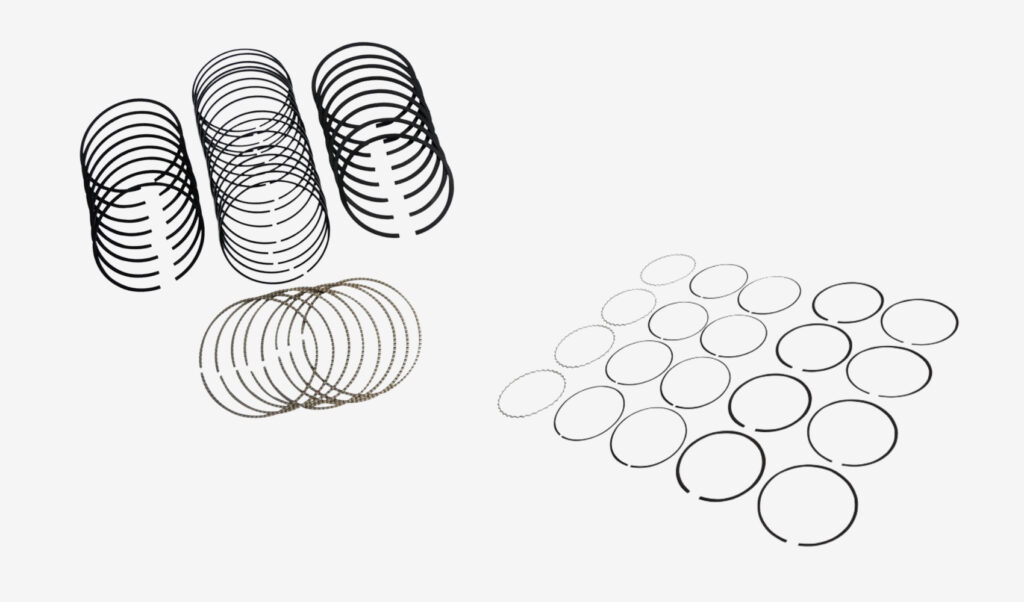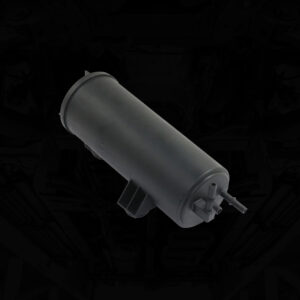Piston rings are arguably one of the most important components of your vehicle. If they wear down or get damaged, your ride could take heavy damage. So you must address bad piston rings as soon as possible. Here are five signs it’s time to replace them.
- Engine misfires and rough idling
- Discolored smoke from the exhaust
- Poor acceleration
- Increased oil consumption
- Overheating engine
But how important are piston rings, and why do they have a huge impact on your ride? Let’s find out after analyzing the warning signs of bad piston rings.
5 Signs It’s Time to Replace Your Piston Rings

Before diving into the symptoms of damaged piston rings, it’s important to make sure the PCV system is operating properly. Odds are, the piston rings aren’t the only things that need to be fixed, and if a malfunctioning PVC system isn’t addressed, you’ll end up with broken piston rings just like before. Bad valve stem seals also cause similar symptoms, so be sure to get yours checked.
Damaged piston rings are a liability that can get you and nearby drivers in serious trouble, so knowing when to replace them is paramount. Inspect them when you notice the following telltale signs to determine whether it’s time for a replacement:
Engine Misfires and Rough Idling
Worn piston rings can cause engine misfires and rough idling, on top of other vehicular problems.
When piston rings break, compression pressure decreases, making the combustion process more difficult because there won’t be enough sealing for proper compression. The engine will struggle to start, and the vehicle might end up inoperable under normal driving conditions.
Discolored Smoke from the Exhaust
Steam usually comes out of the exhaust when the engine is fully functional. However, vehicles with malfunctioning piston rings might produce noxious, foul-smelling, strangely colored smoke.
For example, the smoke from the exhaust might turn pure white, dark gray, or in some cases, blue. Typically white-hued smoke comes from coolant issues, black smoke comes from fuel problems, and blue smoke happens when oil is burned. This might happen due to faulty piston rings causing oil from the crankcase to enter the combustion chamber.
Poor Acceleration
When piston rings break or deteriorate, it affects the vehicle’s combustion chamber by reducing engine compression and creating engine blow-by.
Vehicles with engine blow-by have a hard time accelerating and difficulty in starting. These symptoms often appear after the piston rings have been damaged beyond repair.
Increased Oil Consumption
Another sign your piston rings might be damaged is if your vehicle starts consuming more oil than before. This happens because oil can leak through broken piston rings and could find its way into the combustion chamber.
You can tell if your vehicle consumes more oil than necessary if you find reserves running out faster than usual. The speed at which vehicles use oil varies from model to model.
On average, vehicles need an oil change every 5,000-6,000 miles (four to five months). On the other hand, high-end cars need to get their oil changed every 7,000-10,000 miles (six to eight months).

Overheating Engine
Last but not least, a clear sign that it’s time to replace your vehicle’s piston rings is if your engine overheats frequently.
Broken piston rings can cause excessive oil consumption, leaving the fuel tank empty and reducing engine lubrication. Insufficient lubrication increases friction, which raises the engine’s temperature.
When pistons are heated up to critical levels, the metal expands and scrapes against the cylinder walls, causing severe damage to the engine. If your piston rings completely give way, it’s likely the rest of your engine will follow soon after.
Why Are Piston Rings Important?
Piston rings form a seal between the piston and the cylinder wall to prevent pressurized gasses from entering the oil pan. They regulate how much fuel your vehicle consumes by preventing excess oil from entering the combustion chamber.
Because piston rings are vital, they’re usually made of cast iron and steel for maximum durability. Without functional piston rings, the engine could destroy itself by using up too much fuel and overheating.
How Do Piston Rings Work?
Most pistons have three piston rings: the top, second, and oil rings.
The top ring and the second ring are responsible for pressing against the cylinder wall, sealing the combustion chamber. They keep pressurized gasses inside the combustion chamber and prevent excess oil from entering.
The oil ring scrapes oil off the cylinder wall, returning the fluid to the oil pan and keeping it away from the combustion chamber.
Sometimes oil burns in the combustion chamber because the pistons need lubrication to reduce friction. Excessive friction generates heat and damages the cylinder walls.
Is It Safe to Drive With Damaged Piston Rings?

Driving with faulty piston rings is risky, and doing so can cause severe engine damage. Disregarding them comes with a lot of risks to your vehicle, including but not limited to:
- Increased emissions
- Acceleration issues
- Poor engine performance
- Increased fuel consumption
- Overheating engine
The longer you drive a vehicle with damaged piston rings, the more danger you’ll put yourself and other people in.
How Long Can You Drive With Faulty Piston Rings?
While you can drive up to around 5,000 miles with broken piston rings, it’s safer and smarter to replace the parts as soon as possible. Driving even a single mile can cause significant damage to your engine, making you more susceptible to accidents on the road. Driving with bad piston rings will also damage your catalytic converters due to the oil going through them.
Driving with bad piston rings will also damage your catalytic converters due to the oil going through them.
–Anthony Harlin, ASE Certified Master Automobile Technician
How Much Does It Cost to Replace Piston Rings?
Piston ring replacement costs vary, with prices ranging from $1,800 to $3,500. How much your replacements cost would depend on your vehicle’s model and engine type.
While new piston rings aren’t expensive, labor costs can drain your wallet. It takes a lot of skill and know-how to replace the piston rings of a vehicle, meaning mechanics will charge high prices.
Replacing piston rings also takes up a lot of time, with the procedure lasting up to 10 hours for a total replacement.
Any information provided on this Website is for informational purposes only and is not intended to replace consultation with a professional mechanic. The accuracy and timeliness of the information may change from the time of publication.

































